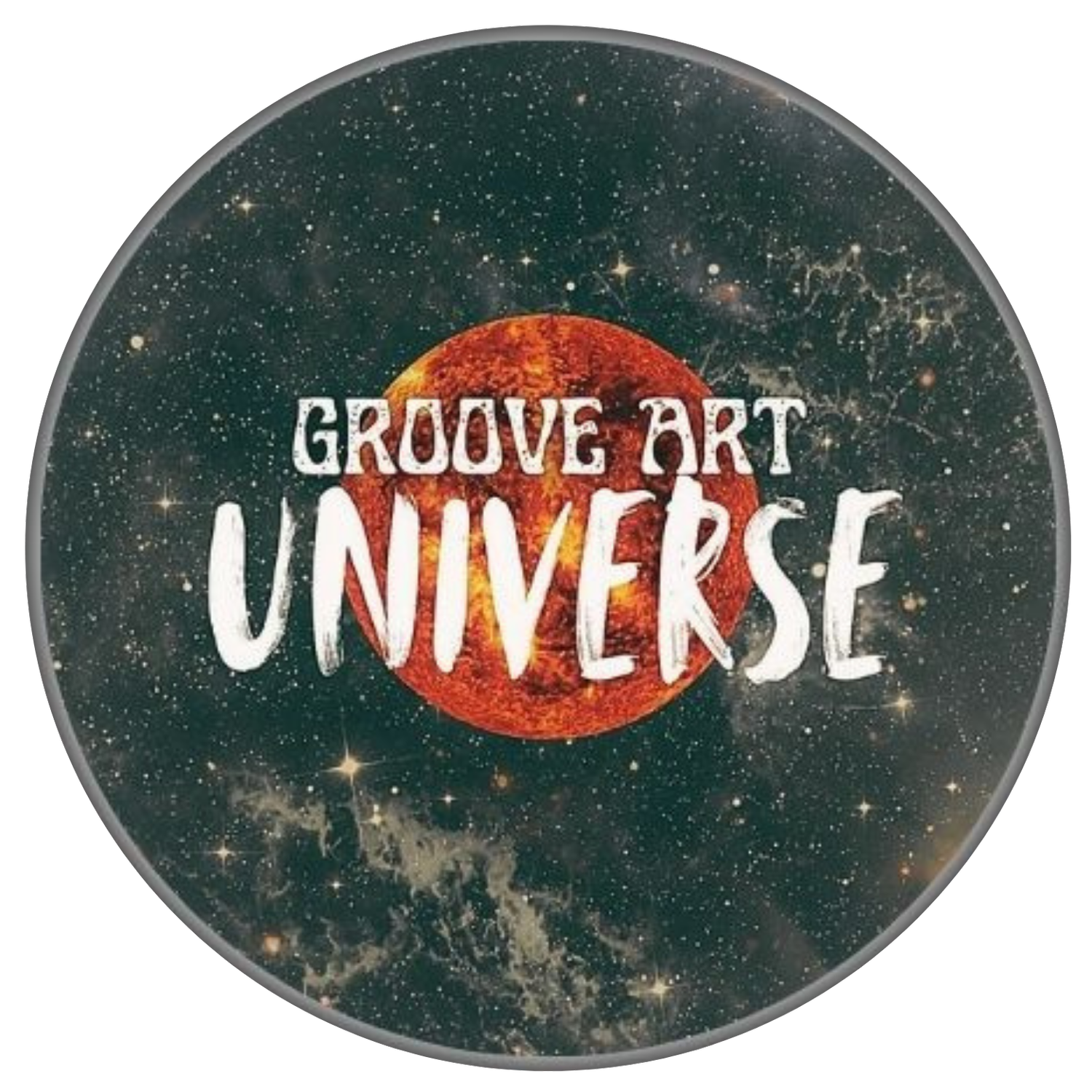
GROOVE ART FEATURE
Jason Pilling
Post Nursery Rhymes
Toronto songwriter Jason Pilling is not bending over backwards to fit into any boxes. His musical output is reliably compelling, original, lovely and authentic. But if you’re not willing to meet the writer where he is, you might not latch on right away.
Luckily for Pilling, he’s got an aesthetic and artistic sensibility that makes the listener want to step into his world and see what’s going on. The new album Post Nursery Rhymes may be the best example yet of this. The cover art lends an immediate weight to this ukelele-centered album, before you’ve ever heard a note.
That first temptation is really all it takes, because once you let the album start playing, it’s so seamlessly likable, so starkly beautiful and cuttingly clever, you’ll feel like you owe it to yourself to listen over and over and dissect it down to the bone.
Somewhere between traditional folk and something on the outskirts of pop, the album contains a lush and thoughtful production effort from Gabrielle Papillon that elevates all of this from something simple yet beautiful into something that sprawls delightfully across the pages of your mind.
“Modern Ghosts” was the first single we heard from this collection, and it’s also the most instantly accessible, the catchiest, and a terrific example of Pilling’s lyrical style. He’s great at writing about the small and routine elements of our lives, and approaching topics and problems from new angles. Tell any number of pop music fabricators to write a song about getting ghosted, and I’m not sure any of them would hit on the idea of comparing your phone’s notifications to the rattling chains of an actual phantasm. Brilliant work.
All of this record, to varying degrees of gravity, is like this. Vignettes of everyday life, explored through the tender vocalisations of Pilling, the sparkling production from Papillon, and Pilling’s typical lyric approach - just inscrutable enough to sow uncertainty, but evocative and artful enough to allow an emotional attachment for each listener, from any number of angles.
The music and the arrangement of “Sixty Seven Minutes” perfectly mirrors the pensive limbo of a long drive that you’ve done many times. And “Metal” is both immensely heavy - in a figurative sense, not a musical one - and absolutely gorgeous. "When the cops get there, you need a bruise - another phenomenal lyric that I’m not sure anyone else would’ve written, in a song with more than its share of mind-blowing lines. The words are wrong, but you can’t get them out of your head - after seven times you’re the victim of an advertisement might be my favorite line on the record.
I have never been able to shake my childlike wonder and glee at the arrangement of “Concerns Stemming From Our Most Recent Conversation”. It plays like the closing credits of a film set in the court of some foppish but benevolent monarch, but reads like the most relatable story of the whole collection - an intervention with a friend who’s begun falling down one of our modern rabbit-holes of lunacy. It’s as brilliantly constructed as are all of these tracks, but the real attraction on Concerns is Papillon’s astounding production, the innumerable flourishes that create a sonic picture like nothing I’ve never encountered in all of the independent music we’ve covered.
“The Accident” is, riding on the backs of yet another precision-strike arrangement, both the most widely resonant text and the most vulnerable vocal performance on the album. I wish you were wood I could glue back together - I wish I could do more than just remember. Pilling has a way with wood - see his impressive videos building instruments by hand - and while this song will hit home somewhere very personal for almost anyone who’s lived longer than a couple of decades, you get the feeling it’s entirely torn from the pages of Pilling’s own storybook.
The mounting existential dread of recent years, the looming sense that we’re complicit in any number of atrocities, the yawning abyss of despair and the cognitive dissonance that swirls like a typhoon in every hour of life the last few years are wrapped up in the most delicate package on “Purity” - I’m reading into the text all of my own issues, as one does with good art, and I’m not sure Pilling’s intention wasn’t something much more precision-targeted. But it’s beautiful and powerful either way.
It all wraps up on a bit of a smirk and a shrug - an aspect of Pilling’s lyrical personality that I suspect is much more prominent than is obvious. He does a great job keeping that guy out of the driver’s seat. But when he sings If we’re gonna get fucked, let’s do it together, you can’t help but feel like the whole record has been redefined.
Because, in the end, these vignettes are what life is. Every moment we spend hyper-fixating on a story about some unfathomably wealthy asshole we’ll never meet, on gargantuan systems of control and commerce and injustice, is a moment stolen from the smell of the spring air, from the presence of someone we love who may not be here tomorrow, from the appreciation of the magical world we inhabit, from the questions of what this life is, from the small steps with which we move the world far more efficiently than by shouting at the news, and so on.
This is an album about the things that color and define all our lives, together, and all of those things go on even as the zeitgeist turns to a hurricane of shit and the pillars of the temple crack and crumble.
Post Nursery Rhymes is a great addition to the soundtrack of this circus.
SUPPORT THIS ARTIST
FOLLOW ON SPOTIFY
ADD ON APPLE MUSIC
